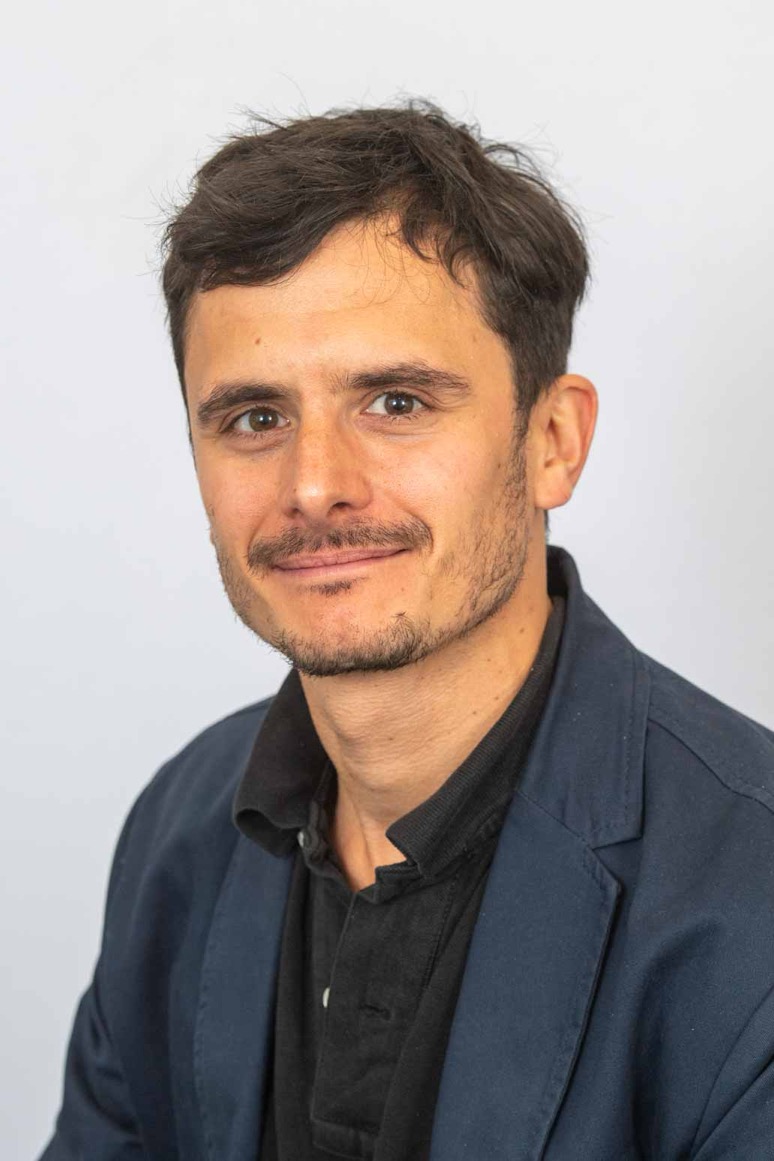Dr Janos Mark Szakolczai
- Lecturer in Criminology (Sociological & Cultural Studies)
Biography
I am a multidisciplinary researcher working at the intersection of digital criminology, surveillance studies, and the everyday impacts of emerging technologies such as AI, XR, and the Internet of Things. My work examines how evolving media environments and smart technologies shape new forms of harm, control, and resistance—particularly within contexts of “trivial surveillance,” ambient data collection, and hybrid physical-digital spaces.
My doctoral research explored the cultural criminology of secrecy and surveillance, focusing on the biopolitical dimensions of domestic technologies like nanny cams and smart assistants. Building on this, my current research investigates the socio-technical risks of immersive platforms—including augmented and virtual reality—as part of a broader inquiry into digital trust, safety, and governance.
I am Principal Investigator of a Scottish Government–funded review of Public Space CCTV in Scotland (2022–23), and currently serve as Co-Investigator on the UKRI-funded DAARC (Design Against Augmented Reality Crime) project (2024–25), which explores the criminogenic potential of immersive technologies. These projects reflect my commitment to critical, policy-relevant research with real-world impact.
My forthcoming monograph, Onlife Criminology: Virtual Crimes and Real Harms (Bristol University Press, 2025), offers a new conceptual framework for understanding criminality and harm in hyperconnected, hybrid environments.
I also convene the MSc Digital Society at the University of Glasgow and lead core postgraduate teaching on digital harms, surveillance, and critical technological futures. Across all aspects of my work, I aim to foster inclusive, research-led approaches that challenge assumptions about crime, media, and technological power.
Research interests
My research sits at the intersection of digital criminology, surveillance studies, and cultural sociology, with a focus on how emerging technologies mediate harm, power, and agency in everyday life. My doctoral research (2022) explored the toxic and covert mechanisms of coercion and control facilitated by networked smart devices—such as nanny cams, voice assistants, and home surveillance systems—highlighting how these tools participate in processes of intimate surveillance, ambient monitoring, and the reconfiguration of personal space through digital intrusion.
My current work examines the criminological and sociotechnical dimensions of ambient, immersive, and AI-enhanced technologies—including augmented reality (AR), virtual reality (VR), and the Internet of Things (IoT) and harms related to the "onlife". I explore how these systems reconfigure norms around privacy, visibility, accountability, and trust, and how they facilitate new forms of hybridised harm in the convergence of digital and physical space—what I term onlife harms.
Central to my methodological approach is a commitment to ethnomethodological breaching experiments and creative public engagement as tools to render invisible technological power visible and contestable. These methods allow me to interrogate how everyday users make sense of algorithmic processes and opaque infrastructures, and how they resist or subvert them in subtle, performative ways.
My work is theoretically grounded in the evolving frameworks of Actor-Network Theory, which I use to trace the agency of non-human actors and to destabilise simplistic binaries between user and device, crime and harm, or online and offline. I am particularly interested in how AI systems—especially those embedded in XR environments or domestic surveillance ecologies—mediate interaction, influence behaviour, and redefine the moral economy of safety, suspicion, and control.
Keywords: surveillance, digital criminology, AI ethics, Actor-Network Theory, obfuscation, XR, breaching experiments, IoT, ambient harm, techno-sociology, trust, digital inequality
Research groups
Grants
- In July 2022, I successfully obtained funding for a 7-month contract with the Government of Scotland. Our study studied the utilization and effects of Public Space Closed-Circuit Television (CCTV) through a comprehensive survey and qualitative walking interviews conducted in collaboration with various Local Authorities and Police Divisions across Scotland. As the Principal Investigator (PI), my team and I compared the findings with those from other regions in the UK and Denmark.
- Along with my colleagues Dr Mark McGill (School of Computing Science, Glasgow) and Dr Richard Jones (University of Edinburgh), we have secured funding from REPHRAIN (National Research Centre on Privacy, Harm Reduction and Adversarial Influence Online) for a project on DAARC (Design Against Augumented Reality Crime) (2024-2025)
Supervision
I am particularly keen in supervising dissertations in novel criminological frontiers such as
- hybrid on/off line reality
- obfuscation, surveillance and data-profiling
- sociological and criminological implications of the Sars-Cov-19 pandemic
- AI and crime prevention
- Smart devices and smart environments
- cyber harm and cybersecurity
- Web Toxicity
- Deepfakes, Bots & Weaponization of Media
Covid and cybercrime;
NFT cyberfrauds via online ethnography
Discourse analysis of media moral panicking
Teaching
Modules that I Teach on:
- 2021/2022: Understanding & Explaining Crime (Convener)
- 2022/2023: Criminological Theory in Context (Convener)
- 2022/2023: MRes Methods Lab (Convener)
- Since 2023: Digital Societies: Theories and Substantive Issues (Convener)
Previous Teaching Experience:
- Sociology of Media
- Anthropology of Social Control
- Law, Crime & Societies
Professional activities & recognition
Prizes, awards & distinctions
- 2025: Shortlisted 'Mobile With Monsters' (SPS Teaching Awards)
Grant committees & research advisory boards
- 2022 - 2023: Scottish Goverment,
- 2024 - 2025: REPHRAIN,
Editorial boards
- 2022: International Political Anthropology
- 2017 - 2020: Irish Anthropological Association
Selected international presentations
- 2023: SocInfo (University of Glasgow)
- 2024: Lectio Magistralis on Metamorphosis: AI and threat to Democracy (University of Pisa)
- 2023: Digital Society & Economy IRT (University of Glasgow)
- 2025: Digital Humanities in Practise (University of Glasgow)
Research datasets
Additional information
Other than academic publications, I have contributed on magazines and newspapers in both English and Italian. I regularly contribute on the blog 'HYPERMODERNITY'.



